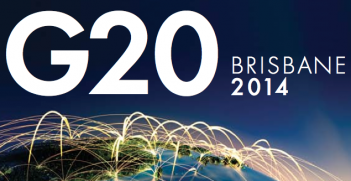Five Eyes as an Economic Alliance?

It is very easy to focus on the challenges that will be posed by the Trump Administration; there is no doubt they will be significant. Fortunately, times of great change often bring opportunities for reform and progress. The ‘Five Eyes’ security arrangement has a strong cultural basis. What can Australia and New Zealand do to harness its potential as an economic network?
For both Australia and New Zealand, President Trump’s withdrawal from the Trans-Pacific Partnership (TPP) is a setback. But we now must think of alternatives. It is tempting to think of this as only an Asia-Pacific question; that the solution lies in other trade arrangements within the Asia-Pacific. There will undoubtedly be efforts in this regard. But the relationship with the United States is simply too important to be parked for four years.
It is time to look for the opportunities that the Trump Administration offers. This means focussing on what he might like to do as opposed to trying to force him to do things that go against his grain. The TPP is dead, as far as it applies to the United States. Arguing for it will not change President Trump’s mind, after all he won the election in part because he opposed TPP.
New opportunities will need to have an obvious appeal to President Trump, equivalent to playing to his vanity.
A possible answer lies in Britain’s determination, set out by Prime Minster Theresa May in her speech at Lancaster House, to go for a hard Brexit. Britain will not be part of the European Union’s (EU) customs union, the European Court will not have jurisdiction, there will be no payments to the EU, there will be no automatic right of free entry, and Britain will be freed from much of the plethora of petty EU regulation.
Instead, Britain will seek a free trade agreement (FTA) with the EU. In principle this will be quite a straight forward negotiation. If the negotiations don’t succeed, then World Trade Organization (WTO) rules will apply. Although Britain has its membership of the WTO through the EU, if any EU member makes it difficult for the UK to change to direct membership of the WTO, they will find themselves the target of direct British trade retaliation.
The key point of the hard Brexit is that Britain now needs to have free trade agreements with as many of its key trade partners as possible. In the week of Prime Minister May’s speech, New Zealand Prime Minister Bill English was in Britain. It was agreed that New Zealand would be first in the queue for a free trade agreement.
Therein lies the opportunity.
Prior to his inauguration President Trump made it clear that he wants a free trade agreement with Britain. This was a very different stance to President Obama. It reflects the fact that President Trump considers the EU to be a failing organisation. It acknowledges his support for Brexit and thus a desire to reward the Brexit supporters, many of whom were vocal in their support of Trump during the presidential campaign. I imagine that Theresa May’s direct style will enable her to build an effective working relationship with President Trump.
Australia is in a similar position to New Zealand; it wants a FTA with the UK as well. Canada has just done a free trade deal with the EU; it will now need to do the same with Britain. In addition President Trump wants to renegotiate NAFTA. This seems to be aimed at Mexico far more than it is aimed at Canada.
All ‘Five Eyes’ nations are looking to do free trade deals with Britain. Australia already has a free trade deal with the United States, as of course does Canada, through NAFTA. So there exists the basis of a multilateral free trade deal among all Five Eyes nations. The framework is largely in place.
A Five Eyes free trade agreement could appeal to many of those who opposed TPP. It would not need investor dispute provisions; any such disputes can be sorted through the domestic courts, though there would need to be a multilateral trade court to deal with tariff and related issues.
The Five Eyes nations have strong cultural, linguistic and economic affinities. It should be possible to also include provisions to improve the movement of people on work visas between the five nations.
For Prime Minister May, this would be a great coup. She will be able to sell to the British people that she has delivered a free trade deal that encompasses as many people as in Europe. It will be proof that Brexit was worth it.
For President Trump such a deal would show he can do strategic deals that work for America. It intimately links a core set of security arrangements with broader trade objectives. In doing so American security and prestige is enhanced.
For Australia and New Zealand, it strengthens their core security relationship with the United States. Importantly it enables both countries to offset their dependence on the Chinese market. This will serve the interests of Australia and New Zealand as well as the United States.
The time to act is now. The negotiations for a Five Eyes free trade agreement will need to take place simultaneously with Britain’s exit negotiations from the EU. The new agreement will need to kick in on the same day that Britain withdraws from the EU.
The election of President Trump will unsettle the existing order. But we have it within our power to take the initiative to shape the new order.
The Hon Dr Wayne Mapp is a New Zealand law commissioner. From 2008 to 2011 he was New Zealand’s minister of defence and minister of science and technology.
This article is published under a Creative Commons Licence and may be republished with attribution.





